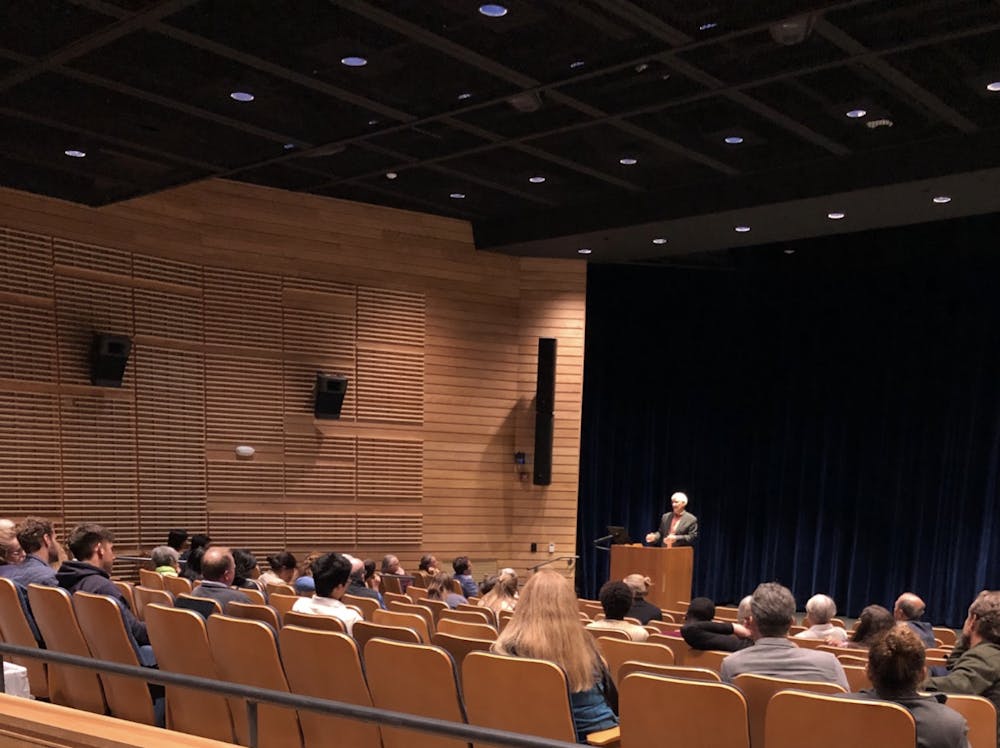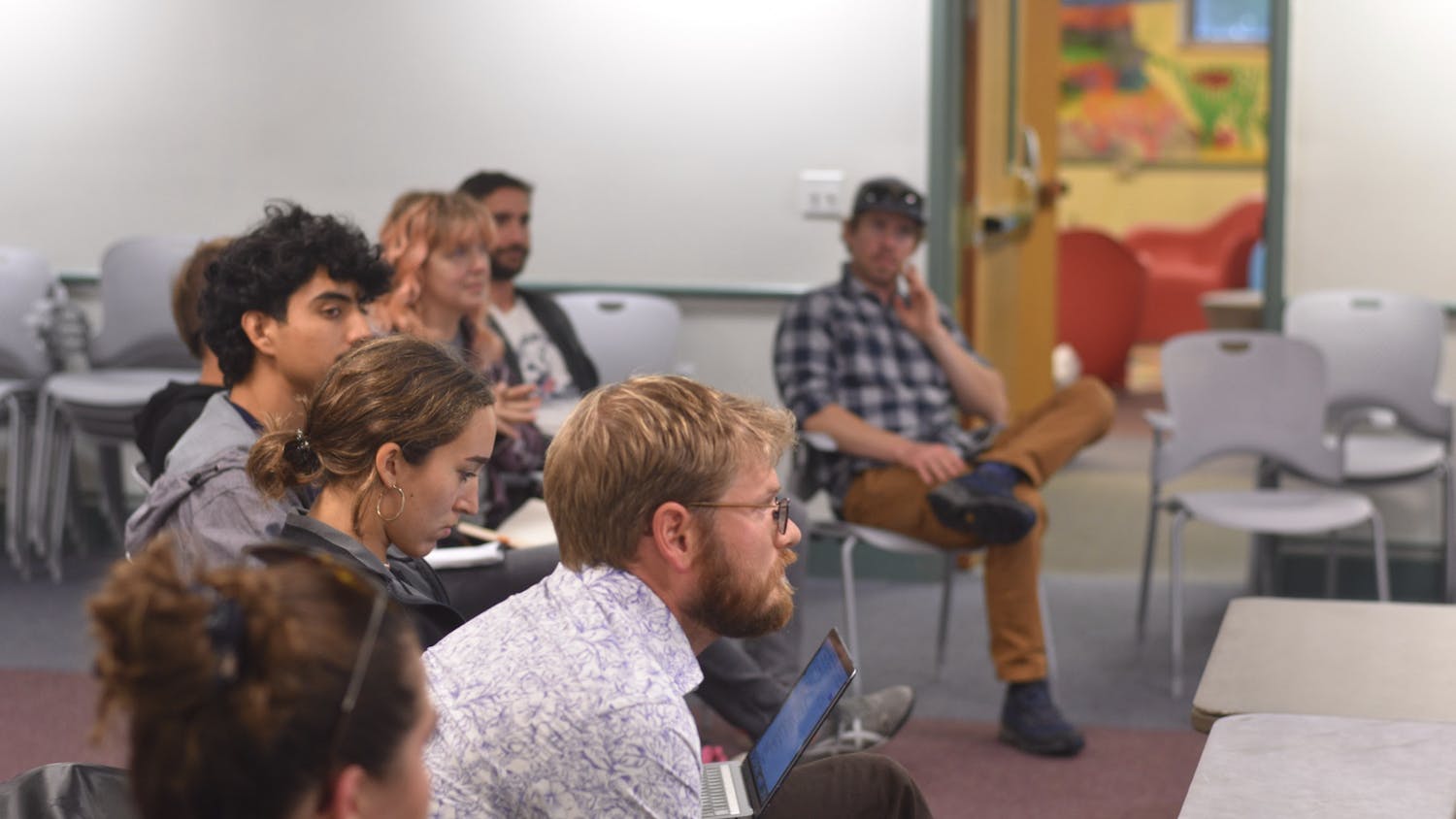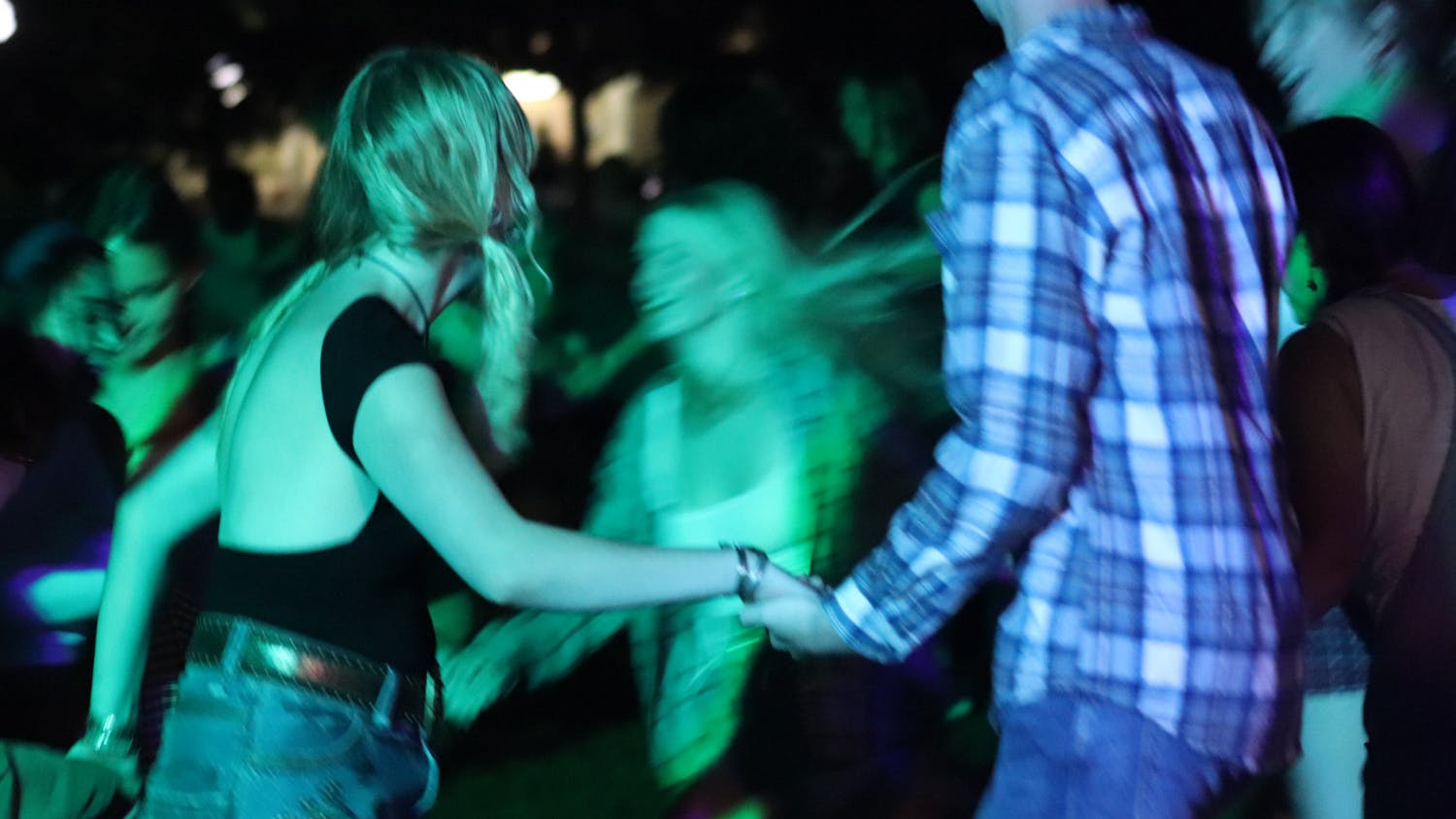This year’s Clifford Symposium, titled “Conflict Transformation,” focused on understanding what conflict transformation looks like through courses, research and community service carried out by Middleburyfaculty and students.
The Clifford Symposium, named after Professor of History Emeritus Nicholas R. Clifford, brings the Middlebury community together every fall to discuss and reflect on a chosen subject. The topic for this year’s symposium considered how the ideas in conflict transformation can be implemented at Middlebury following a $25 million grant for the Kathryn Wasserman Davis Collaborative in Conflict Transformation last spring.
The symposium opened on Thursday, Sept. 22 with the Woodin Environmental Studies Colloquium, a series of weekly talks held by the Environmental Studies Department. The panel featured four Middlebury professors speaking about how this transformation could be understood by learning about examples from their various departments such as English, Environmental Studies, Geography and Economics.
John Paul Lederach, professor emeritus at the University of Notre Dame and senior fellow at Humanity United, gave the keynote address on Sept. 22 about his leadership on global peacebuilding efforts and reimagining conflict through hope. Lederach introduced the concept of the “200-year present,” in which he asked the audience to imagine their lives’ impact throughout centuries, to convey their power to create change and impact people.
“Take two numbers. The number of the decade of the oldest person you knew was born compared with the number of how far out the youngest person in your extended family might live… and subtract one from the other. In my case, that’s 1860 and 2110. That’s 250 years,” Lederach said. “These are the lives and the people that have touched you, and these are the lives and the people that you will touch. It’s an extraordinary thing to imagine our location across centuries.”
After grounding the audience in imagining their potential to impact centuries, Lederach described his peacebuilding work in the 1980s to bring together 30 leaders from Central America facing conflicts in their nations. Lederach was initially challenged by these communities to consider that, in seeking to solve their problems quickly, he would not actually create constructive transformation.
Lederach also spoke of his work in Colombia as it emerged from 60 years of civil war with the new “truth-seeking commission” that sought to understand the violence so that it would not be repeated. Lederach shared that the commission made many important developments in how they acknowledged the suffering of both local and displaced Colombians, but the critical piece of their work to prevent future violence was the hope they held that change was possible.
“I cannot tell you how many times I have been told by my dear friends in the academic world, policymakers and philanthropy [that] hope is not a strategy — but I have never seen a significant process of transformation without hope,” he said.
Friday’s events opened with a talk on racial conflict by Khuram Hussain, vice president for equity and inclusion, who spoke about the small college town of Geneva, N.Y. and how it could serve as a model for Middlebury to transform our community relationship. Hussain described moving from a system where his school and students work for their town to one where the college works with the community in dialogue as equal partners to create change for the places and people that were previously invisible.
“Can we find ourselves moving away from this subjective vertical [hierarchy] of power, wherever we fall in it, to one that is horizontal? Can we relieve ourselves of the burden of having to live in a world that distributes power, authority, legitimacy, access to resources in vertical ways?” Hussain said. “This is really simple stuff. Where can we show up in contact with you, instead of doing things for you?”
The Clifford Symposium also featured student recipients of conflict transformation fellowships and grants last summer, who presented posters describing their research projects and community engagement. One of the central goals of the Kathryn Wasserman Davis Collaborative in Conflict Transformation is community engagement, leading the program to fund 21 summer internships as part of the Privilege & Poverty Academic Cluster to examine conflict’s relationship to poverty and other issues.
Other events on Friday Sept. 23 included a talk by Professor James Chase Sanchez about his documentary on sexual abuse in boarding schools and his personal experience with the subject. Through this perspective, Sanchez advocated for non-defensive communication to reclaim power through openly sharing information.
This was followed by a panel discussion of employees from different departments such as the Middlebury Athletic Department, the Scott Center for Spiritual and Religious Life and the Center for Community Engagement. These speakers shared their experiences with conflict transformation in their work at Middlebury, speaking about how the disruptions conflict creates can actually improve the liberal arts education Middlebury strives for.
Friday night featured a dance-theater performance, “Same But Different,” by Christal Brown, associate professor of dance, and Lida Winfield, visiting assistant professor of dance, that explored the ideas of race, gender and age. through the lens of their artistic expression and communal existence.
The symposium concluded on Saturday morning with a series of sampling sessions intended to expose participants to different areas of conflict transformation, such as restorative practices, intercultural communications and aikido, a form of Japanese martial arts.
This year’s symposium sought to build a foundation for conflict transformation at Middlebury over the seven-year period of the grant. Reflecting on the work that remains to be done in this field and how Middlebury can contribute to a better future, Lederach spoke to the possibility of human hope and imagination healing our 200-year present.
“This could be the century of whether or not our imagination about our humanity as a global family will lead us in the direction of finding the survival of our species,” Lederach said. “I think this is the century of transformation. We will either get it, or we won't.”

Ryan McElroy '25 (he/him) is the Editor in Chief.
Ryan has previously served as a Managing Editor, News Editor and Staff Writer. He is majoring in history with a minor in art history. Outside of The Campus, he is co-captain of Middlebury Mock Trial and previously worked as Head Advising Fellow for Matriculate and a research assistant in the History department. Last summer Ryan interned as a global risk analyst at a bank in Charlotte, North Carolina.




